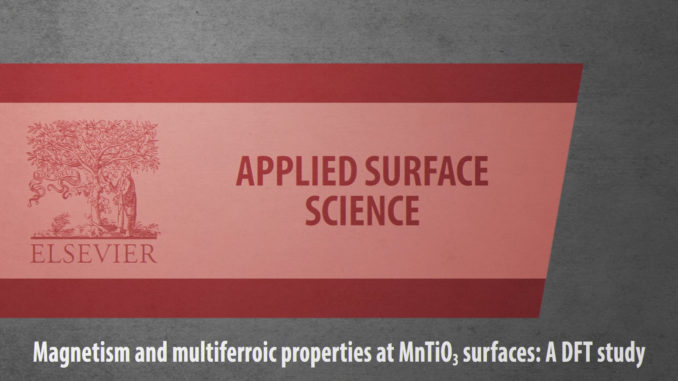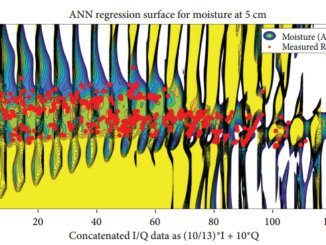
Magnetism and multiferroic properties at MnTiO3 surfaces: A DFT study
Abstract: The present study illustrates how density functional theory calculations can rationalize the surface structure and magnetism for the low-index (1 1 0), (1 0 1), (1 0 0), (0 0 1), (1 1 1), and (0 1 2) surfaces of MnTiO3. A simple procedure, without surface reconstructions or chemical adsorptions in which the stability, magnetism and the morphological transformations is presented in detail to clarify the control of their multiferroic nature. The surface stability was found to be controlled by the octahedral [MnO6] and [TiO6] clusters formed by the Mn2+ and Ti4+ cations – i.e., their local coordination at the surfaces, respectively- with nonpolar (1 1 0) being the most stable. Enhanced superficial magnetism was found for (0 1 2), (0 0 1), and (1 1 1) surfaces in agreement with the more undercoordinated [TiOn]′ and [MnOn]• complex clusters at the surface plane. Our calculation suggests the existence of magnetic [TiOn]′ species for unstable (0 0 1) and (1 1 1) surfaces, explained by the unusual crystal-field associated with the surface environment. The crystal morphology has been predicted to determine the most likely terminations to be present as well as the intrinsic magnetization density associated with morphologies. Moreover, the (0 0 1) surface plane plays a key role in the enhancement of the magnetic properties for shape-oriented MnTiO3 nanoparticles, suggesting a superior magnetoelectric coupling due to the presence of uncompensated spins and polar distortions perpendicular to the surface plane.
Author(s): Ribeiro, Renan A. P.; Andres, Juan; Longo, Elson; et al.
Applied Surface Science
Volume: 452 Pages: 463-472 Published: 2018
DOI: https://doi.org/10.1016/j.apsusc.2018.05.067
PDF: Magnetism and multiferroic properties at MnTiO3 surfaces A DFT study




